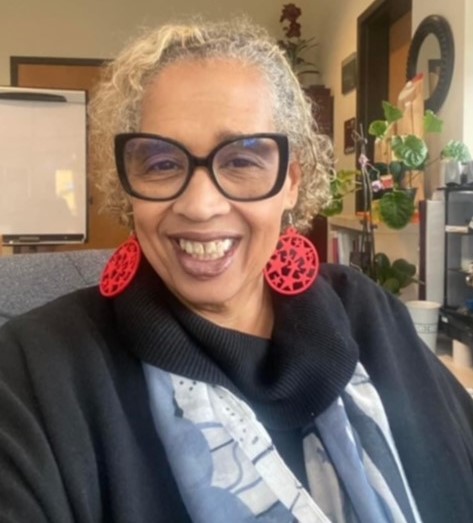Building Operations and Customer Service Representative, Operations
Kim, known by many as the face of the PACCAR Medical Education Center, joined the Adena family 10 years ago as team lead of the concierge team. For the last nine of those years, she has been the caregiver welcoming everyone to the center. In her role, she not only provides excellence customer service, but also is responsible for the upkeep and maintenance of the building and for managing all of the room reservations for meetings and events taking place there.
Here, she offers her thoughts on Black history and shares her experiences as a woman of color living in southern Ohio.
What is Black history?
“When I think of the question of what Black history is, I instantly think that I am Black history. I am a mother and a grandmother who has always worked full time, who has a BA degree from The Ohio State University, and who has held many high offices in several organizations. I am also the CEO and owner of my own business, JACE Jewelz, and someone who has just accepted her calling into the ministry. I’ve done all this while still working full time and taking care of an elderly parent. I’ve remained involved in the organization and community, and am currently enrolled in a school of ministry. Against all societal odds, I am her.”
Early experiences
“Being born and raised in Southern Ohio has not always been easy, but growing up as a child, I never really felt that different because I got along with everyone. It wasn’t until I went away to The Ohio State University in 1980 that I encountered true racism for the first time.
“When I went to school, we had 16 girls sharing a pod. We had one living space and four bedrooms which each had four desks and two bunk beds. All 16 girls shared three toilets and two showers. I was the only black girl with 15 white roommates. I got along with everyone except this one girl wouldn’t even look at me. Why, you ask? Because I was the first Black person she had ever seen in real life. Her Great-great-great-grandfather, all the way up through her father, served as the head of the Ku Klux Klan in South Carolina. I kindly let her know that I knew her history, and we stayed away from each other and there was no trouble.”
Still a ways to go
“Fast forward to 1994-2007 I worked at Cellular One and ATT here in Chillicothe. There were always people that would come in and need help, but they didn’t want me to wait on them because of the color of my skin. They would sometimes wait for hours until a white sales person came available, and most of the time I was the one who knew the answer they needed because I was the manager. They would get mad and leave, not allowing me to help them at all. Fast forward again to 2014 to 2024 and, even now, I have people who will walk into PACCAR in need of something but they don’t want to ask me. At the end of the day, usually they have to come back to me for help anyways. Yes, even in 2024, racism still exists. Yes, even in 2024, the color of my skin makes some believe I am incompetent or incapable of helping them.”
Why Black history is important
“I feel it is important to teach Black history and talk about it. History is important, regardless of how ugly it was. Let’s talk to each other and not about each other. What is in books is only half the story and only shares what is a little more comfortable for people to know. Everyone has a story to be shared, however, and there is a purpose for your story. Remember, you hold the pen to a better future.”
